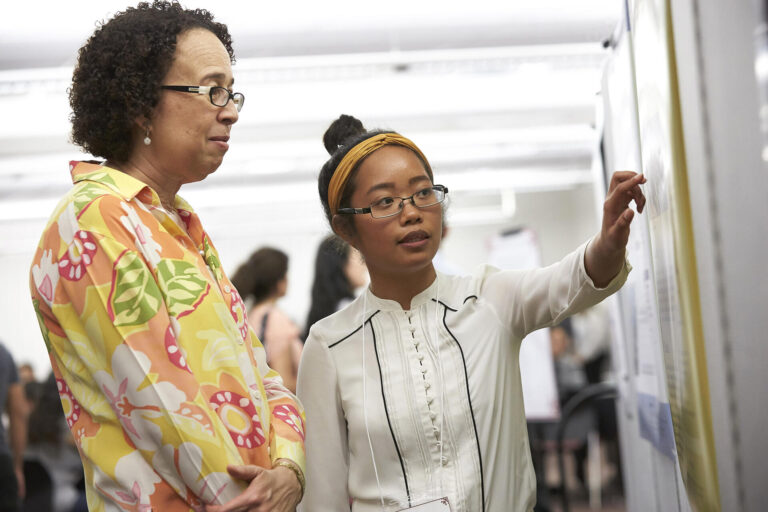
When students come under the watchful eye of civil engineering professor Jacimaria Batista, she does more than teach them about the fundamentals of water resources management. She gives them the opportunity to succeed by finding grants to support their education, finding them jobs in labs on campus, and even getting them tutors when they have problems in class.
The students appreciate mentorship that comes with hours in the lab, she said, but the pay helps ensure they can focus on building future careers rather than how to pay their daily expenses.
“It’s very different from when I was in school. I was a very poor student when I went to college. I baked cakes to make ends meet,” says Batista, the Southwest Gas Professor of Renewable Energy.
Today the stakes are significantly higher when Batista raises funds. Her first grant at UNLV was from the Environmental Protection Agency for $340,000. She’s since brought in more than $29 million in collaborative research funding and about $7 million as an individual researcher through what she calls trial and error. She says companies reach out to her now as an expert consultant, but when she was starting out as a student she would go to networking events with potential sponsors and hand out her business cards.
“It’s a practice I still encourage with my Ph.D. students and tell them to always do the work and deliver on the project.”
Batista earned the 2021 Harry Reid Silver State Research Award, which honors faculty whose research is both highly regarded and responsive to the needs of the community and state. She is only the third woman to receive the award since it was established in 2001.
“I felt very proud when I heard about the award, and I was proud of all the students who have helped me since 1998, when I started water research at UNLV.”
UNLV has evolved into the educational headwaters for future water managers in Nevada. Batista points to the success story of alumna Camille Calimlim Touton, the current commissioner of the Bureau of Reclamation.
“We can contribute to the conservation of water in Nevada by educating water experts,” Batista said. She hopes to soon see the launching of a PhD program at UNLV. “It would be ideal for casino environmental managers so they can manage water use responsibly while meeting the water needs of the casinos.”
Her research lab works on environmental issues of international, national, and local concerns. Many areas of her research have major impacts on Nevada, including the cleanup of perchlorate contaminant from the Las Vegas Wash, Lake Mead, and the Colorado River, research on the water quality of Lake Mead, and her contribution to research on the nexus between solar and water energy through a $20 million National Science Foundation grant. Batista also led the effort in cleaning up soil in Henderson that was contaminated by rocket fuel manufactured there during World War II.
But despite all her successes, for Batista, the focus always comes back to the student.
“Everything is about the students, not the faculty,” she stresses. “There is no university without the students. When you focus on the students you get a good feeling that you did something right.”